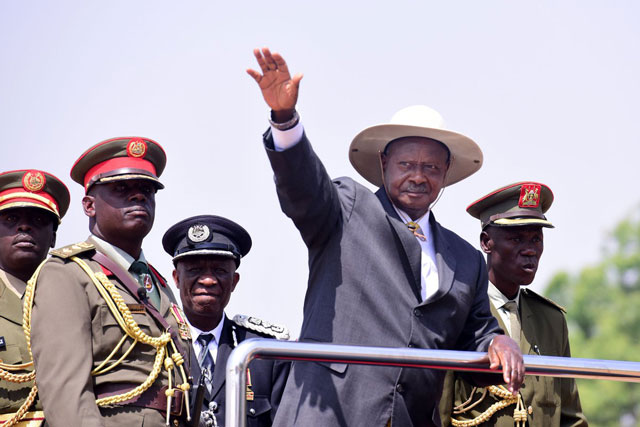
‘Independence is about Africans rediscovering themselves’
NRM programme point No.4: Defending and consolidating National Independence
James Magode Ikuya is a political activist who has worked with UPC, FRONASA and NRM. He spoke to Ian Katusiime about consolidating national independence, one of the ten point programmes outlined by NRM when it captured power in 1986.
As someone who has been part of all these liberation struggles, what does the NRM anniversary mean to you?
There are two strands there; the values which were espoused during the period of struggle give me a very clear vision of what things would be, including what NRM could have been. Now, there are several trends on what you are calling NRM, there is NRM official; those speak for myriads of new tendencies which have crept in the country. They are not part of that original concept and it has been given a new concept. To some people, NRM is just a power relation-enjoyment of power, its use and how to wallow in it and the impunity.
With us, we mainly look at the population and consequently what independence meant for our country. Independence was significant in a sense that the population had been dispossessed of power including being human. At first there was slavery, then came colonialism which made Africans slaves in their own homes. The control of Africans to us was a terrible thing. Regaining independence was a process, it was not just about declaring things. The process of taking away independence was very systematic so regaining it had to be a very deliberate process which inculcates new values and enables Africans to make discoveries about themselves. It was about rebuilding a society for Africa. That’s a completely different process. And that is what our view of independence was.
NRM has stayed with one leader for so long. How has this affected its ability to defend and consolidate national independence?
That is a partial issue, the question is bigger than just one person. The question is whether those ideas of independence have been inculcated as a system so that it is part of a process. That’s the bigger challenge. Regardless of how many people you change, the problem will stay.
Whether you have Bobi Wine today, another one tomorrow, it will not change the structure of that tragedy. What we are trying to address is a diversion of issues. We haven’t brought to the core the question which should have been there and because of the lack of core issues, we are bringing secondary questions.
In the end the politics is being taken over by those who have money. If you have ideas, who will listen to those ideas? None can even be raised. The few of us who can raise those ideas are getting expired-our voices are getting less heard and we are getting elderly.
Do you think the NRM has made some gains in the quest of consolidating national independence?
We had hopes which are being dissipated. The good thing is to have hope. It gives some people direction. And now we are discussing different concepts. A lot of things are required to be in place. I generally hesitate to discuss individuals. I want to discuss tendencies.
Politically what does independence mean to you?
Independence is a process of ensuring Africans rediscover themselves. That’s a fundamental question. The Africans have to discover themselves. We are lost somewhere. That process has not been consummated. On the contrary, it has been interrupted by many new factors and therefore we are always diverting from addressing the core questions. Because of lack of that discovery, we have not built institutions to point us in that direction of discovery.
How can the youth be involved in concepts of consolidating independence?
The youth will be obliged to reflect on that more seriously than anybody else. They have a more serious stake in the future than any of us who have been talking about Uganda in the past. But the dawning of reality on them is the most important question. They must look at the reality of the situation and take interest in it. You have to take interest. If you don’t take interest in it, nobody will have answers to that. Study the history of the country and the experience of those in the past in order to know where this present came from and join forces whether old or young.
It is not youth against old people. That is another misleading factor; other people pit the youth against old people as if the old people are their problem. The youth must generate ideas; get ideas from those who have been there. Then you can map out the future.
 The Independent Uganda: You get the Truth we Pay the Price
The Independent Uganda: You get the Truth we Pay the Price



